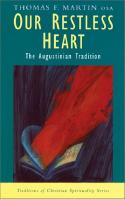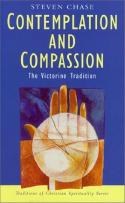Issue Date: October 24, 2003
Reviewed by ANTONIA RYAN Two recent books from the Traditions of Christian Spirituality Series explore the contributions of Augustinian spirituality in the Christian church. St. Augustine (354-450) -- author, theologian, philosopher, bishop, monk -- applied his great talent and intellect to the questions of Christian theology during a formative period of the church. In Our Restless Heart, Augustinian Fr. Thomas Martin proposes, “that it is with the notion of the ‘journey’ (peregrenatio) that one finds a key to understanding and living Augustinian spirituality.” The book covers aspects of this “journey” of the Augustinian “restless heart”: Augustine’s own conversion; his forays into monastic life and the Rule he developed for community living; the many people and movements he influenced throughout history. Notable among these were the canons regular of the 12th century -- groups of priests who lived a common life of prayer and followed the Rule of St. Augustine -- and reformers such as Martin Luther (who was himself an Augustinian canon). The last chapter of Our Restless Heart includes an interesting discussion of “modern and postmodern Augustinians,” which talks about the possible influence of Augustine upon modern philosophy. The author concludes the section about Descartes and Augustine by saying that the rationalist view of the self “stands in stark contrast with the Augustinian self of restless heart narrated in his Confessions, where ultimate certitude is no less that the love of God.” The Victorines were a group of Augustinian canons from the Abbey of St. Victor in Paris. The abbey was founded by William of Champeaux, who retired as a master in the schools of Paris in 1108 and set up the small community on the Seine. Contemplation and Compassion describes the major theologians to come out of the Abbey of St. Victor and some unifying currents that ran through the spirituality of this group of men. Hugh of St. Victor (1096-1141), the most prolific of the Victorine writers, was a brilliant theologian and teacher who summed up the Victorine focus on the world in his saying, “Learn everything, and afterward you will see that nothing is useless.” To the Victorines, knowledge and love were the two fundamental powers of the soul. Philosophy, the arts and even secular studies were important for understanding truth in the scriptures. The Victorine tradition, heir to Augustine’s spirituality, followed “a middle way between static formalism in prayer and unbridled sentimentality in devotion,” and strove above all to be true to the Christian virtue of charity. Benedictine Sr. Antonia Ryan is a freelance writer with a degree in church history. Her reflections on the Holy Spirit in history recently were published in Review for Religious. National Catholic Reporter, October 24, 2003 |

